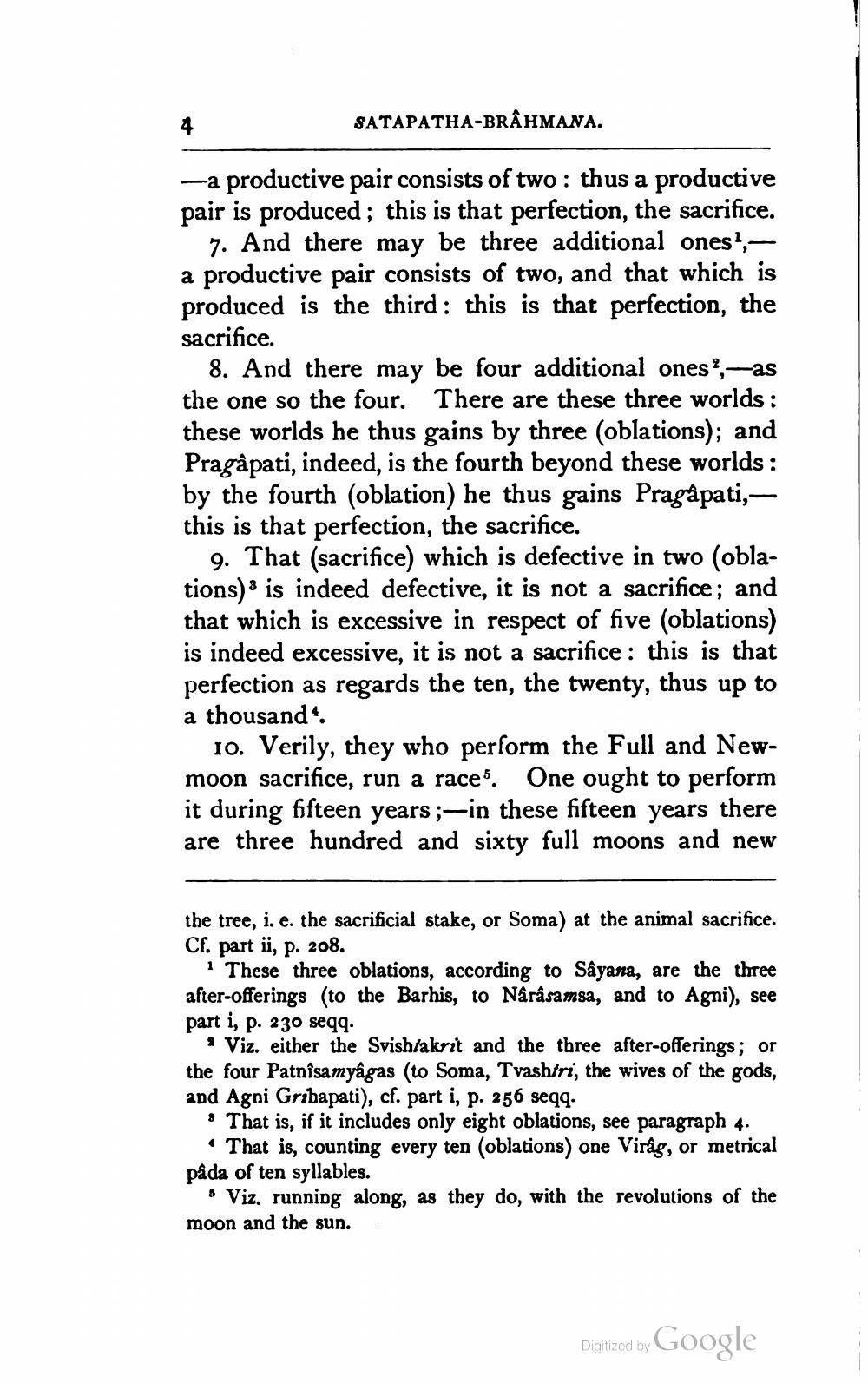________________
SATAPATHA-BRAHMANA.
-a productive pair consists of two: thus a productive pair is produced; this is that perfection, the sacrifice.
7. And there may be three additional ones',a productive pair consists of two, and that which is produced is the third : this is that perfection, the sacrifice.
8. And there may be four additional ones',-as the one so the four. There are these three worlds : these worlds he thus gains by three (oblations); and Pragâpati, indeed, is the fourth beyond these worlds: by the fourth (oblation) he thus gains Pragàpati, this is that perfection, the sacrifice.
9. That (sacrifice) which is defective in two (oblations) is indeed defective, it is not a sacrifice; and that which is excessive in respect of five (oblations) is indeed excessive, it is not a sacrifice : this is that perfection as regards the ten, the twenty, thus up to a thousand".
10. Verily, they who perform the Full and Newmoon sacrifice, run a race. One ought to perform it during fifteen years ;-in these fifteen years there are three hundred and sixty full moons and new
the tree, i.e. the sacrificial stake, or Soma) at the animal sacrifice. Cf. part i, p. 208.
1 These three oblations, according to Sâyana, are the three after-offerings to the Barhis, to Nárásamsa, and to Agni), see part i, p. 230 seqq.
9 Viz. either the Svishtakrit and the three after-offerings; or the four Patnîsamyâgas (to Soma, Tvashtri, the wives of the gods, and Agni Grihapati), cf. part i, p. 256 seqq.
* That is, if it includes only eight oblations, see paragraph 4.
• That is, counting every ten (oblations) one Virág, or metrical pâda of ten syllables.
* Viz. running along, as they do, with the revolutions of the moon and the sun.
Digitized by Google




